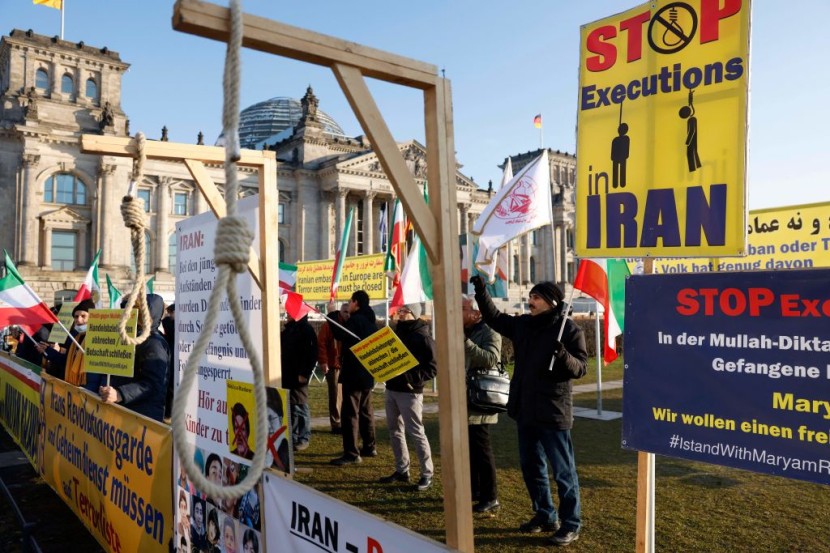
Despite objections from human rights organizations, Iran executed three men accused of committing violent deaths on Friday during last year's anti-government protests.
Mizan, the website of the Iranian judiciary, proclaimed the executions of Majid Kazemi, Saleh Mirhashemi, and Saeed Yaghoubi but did not specify how they occurred. During nationwide protests in November, authorities say they killed a police officer and two members of the paramilitary Basij group in Isfahan.
Iran Executes 3 Men Over Recent Anti-Government Protests
According to rights organizations, the three were tortured, coerced into televised confessions, and denied due process. Mahsa Amini, a 22-year-old woman detained by the country's morality police for purportedly violating its strict Islamic dress code, died in September last year, sparking the protests.
The demonstrations escalated quickly into demands to overthrow the theocracy that had governed Iran since the Islamic Revolution of 1979. There are still sporadic acts of defiance, including many women refusing to wear the mandatory Islamic headscarf, also known as the hijab.
As per NBC News, Iran has executed seven individuals in relation to the demonstrations. According to rights organizations, they and other death-sentenced individuals were convicted by secretive state security tribunals and denied the right to a defense.
On Thursday, the US State Department urged Iran to refrain from carrying out the executions, referring to the proceedings as "show trials."
Amnesty International said the men were "rushed through Iran's judicial system" without due process. Last year, Iran executed at least 582 individuals, a 75% increase from the year before, according to human rights groups, who say the increase reflects Tehran's effort to "instill terror" among anti-regime protesters.
According to a report published last month by the Iran Human Rights (IHR) and Together Against the Death Penalty (ECPM) groups, it was the highest number of executions in the Islamic Republic since 2015.
More than fifty percent of last year's executions occurred after the outbreak of demonstrations in September. Per CNN, the US State Department condemned the latest execution plans for Kazemi, Mirhashemi, and Yaqoubi.
The Hengaw Organization for Human Rights, an additional NGO that monitors human rights violations in Iran, stated on Twitter that the three men "had the bare minimum of defense rights." The organization condemned an "incomprehensible surge of executions in Iran."
Read Also : Russia-Ukraine War: Crimea Train Suspiciously Derails After Explosion; Authorities Blame Outsiders
Iran Protests
In the past week, cultural figures inside and outside of Iran, as well as family members, have intensified their efforts to halt the executions because Iranian authorities have failed to provide conclusive evidence of the men's responsibility for the deaths of two members of the Basij paramilitary force and a law enforcement officer.
Families and supporters held nocturnal vigils in front of the Dastgerd prison in Isfahan for the three men being held there. On Wednesday, they met with their families for the last time, prompting concerns that their execution is imminent.
Immediately following the execution of the defendants on Friday, state media rebroadcast confessions that Amnesty International claimed were extracted through torture.
About the protest movement that overtook Iran in September, at least seven persons have been executed and dozens more have been sentenced to death or convicted of capital crimes. Since the revolution of 1979, the nationwide demonstrations that began last autumn have become one of the most audacious challenges to clerical leadership, as per Guardian.
Prominent Iranian figures, such as the actor Taraneh Alidoosti - herself imprisoned for a few weeks in December for disseminating a photograph of herself without a hijab - and the footballer Ali Karimi had conveyed their concern for the three men's well-being. Rallies in Berlin, London, and Stockholm supported them.
Related Article: Xi Jinping Administration Shuts Down Beijing LGTB Center as Crackdown Grows in China
© 2026 HNGN, All rights reserved. Do not reproduce without permission.








